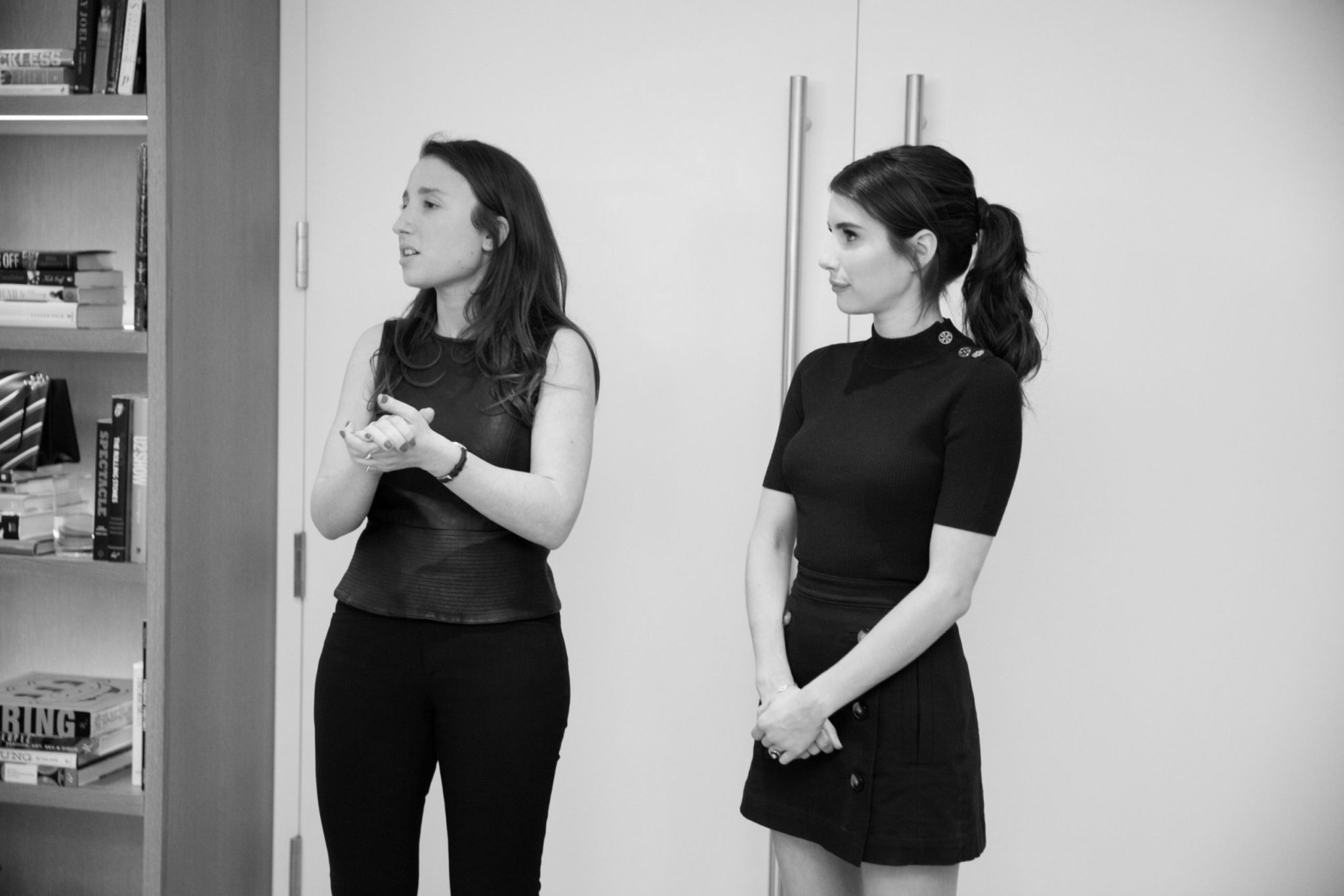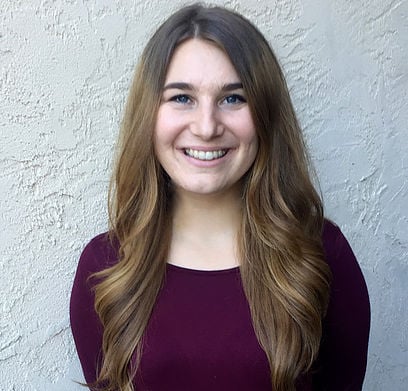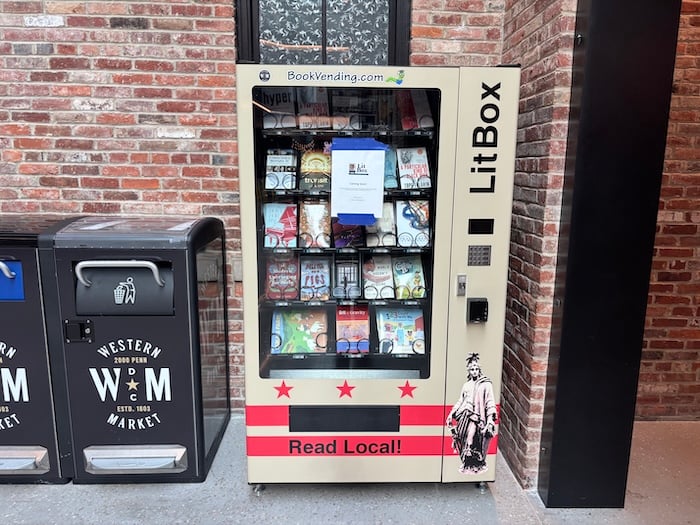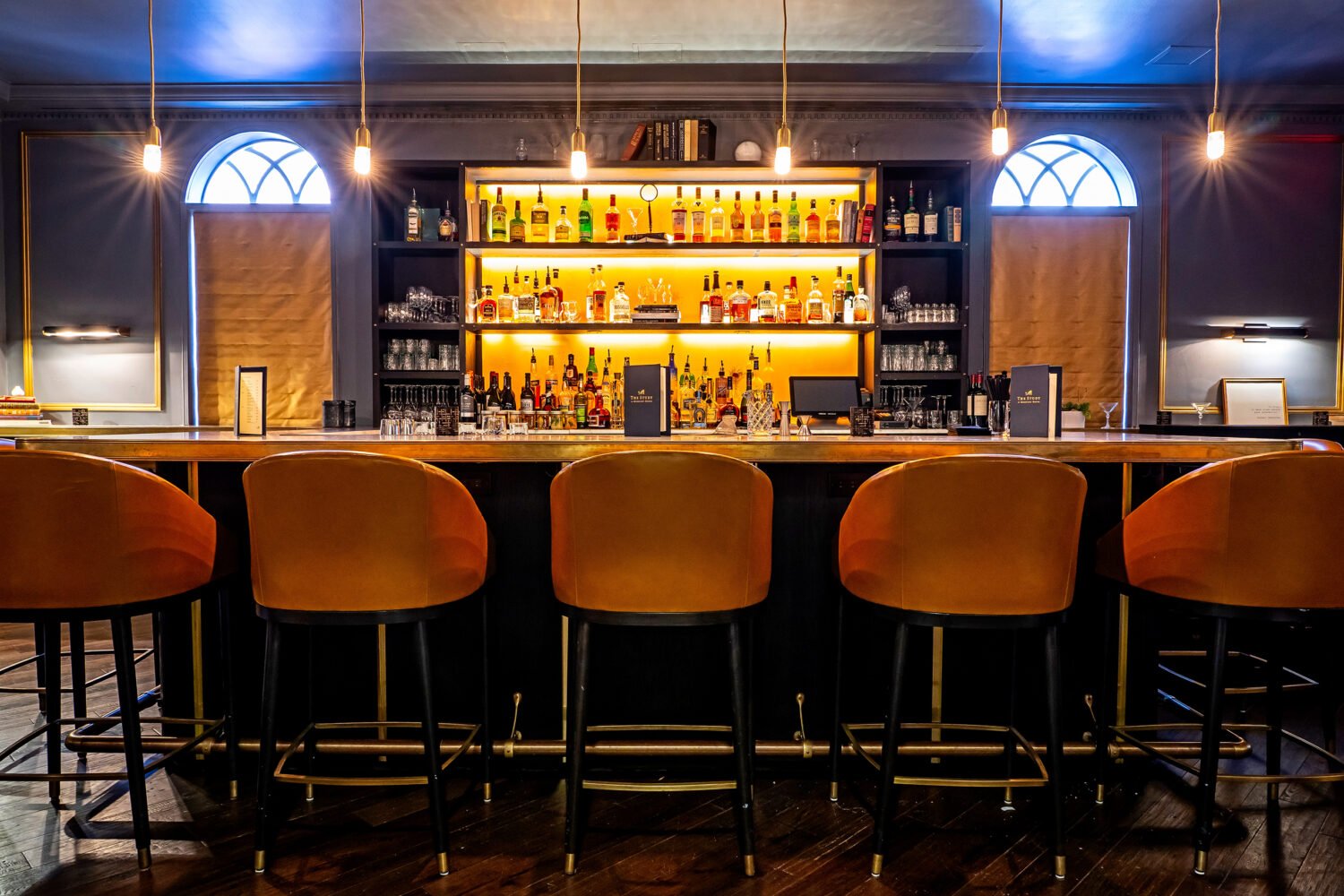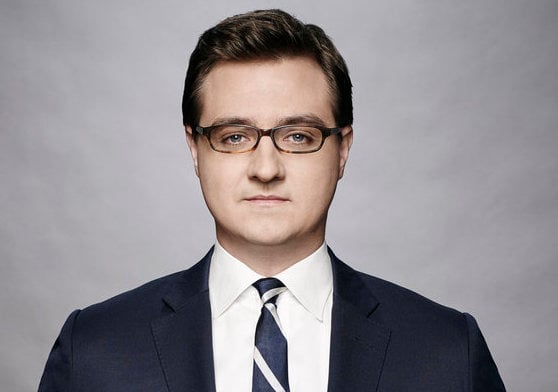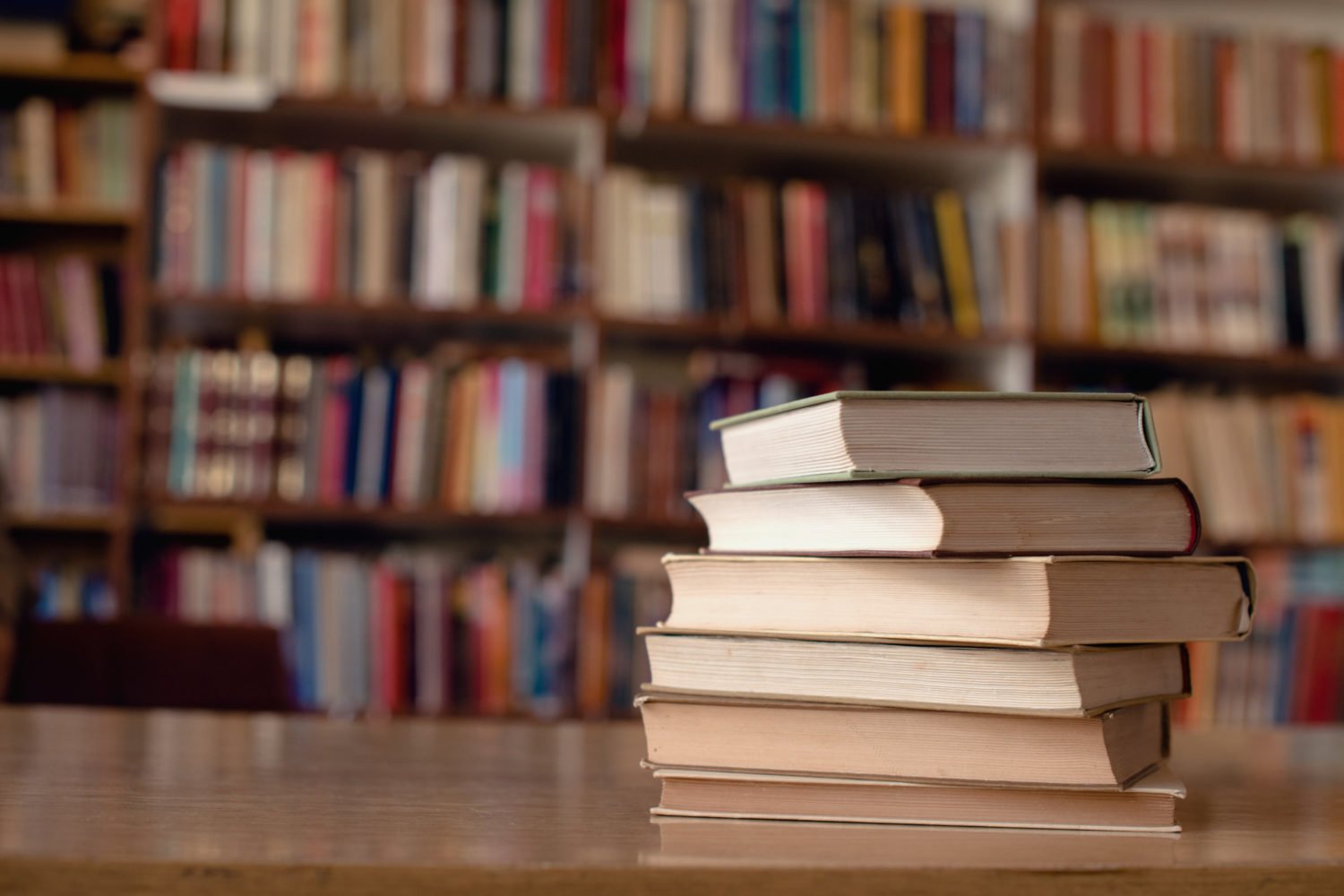Belletrist, the online book club co-founded by actress Emma Roberts and her best friend Karah Preiss, recently named Kramerbooks its indie bookstore of the month.
“We’re really thrilled to be selected by Belletrist as its indie bookstore of the month,” says Steve Salis, the owner of the holding company that operates Kramerbooks. “A vast majority of our customer profile is female-driven and I think Kramers has been a place of discovery and experience for guests of all ages, but we’re especially seeing an increase in millennial consumers. Belletrist has the pulse on what and who is relevant today. I definitely think there’s a lot of alignment there.”
The community of Belletrist “babes and beaus” started last year when Roberts noticed the significant interest and engagement her book recommendations received on her personal Instagram account. Since then, the two best friends have recommended a book and indie bookstore each month. The club has since expanded into publishing interviews (the inaugural pick was Joan Didion‘s South and West and Roberts interviewed the literary icon) and holding live events, including a monthly effort to highlight young adult fiction called “Why Not YA?” with Epic Reads.
Preiss will interview journalist and author Patricia Miller this Thursday at Kramerbooks to discuss Bringing Down the Colonel, a dishy historical thriller about how one woman brought down the powerful politician she had an affair with, the book that the club picked for its readers this month. Preiss caught up with Washingtonian to talk about what makes bookstores special, how she carves out time to read, and how she and Roberts manage their business from opposite coasts.
https://www.instagram.com/p/BqnTEyQgJNl/
What made you pick Kramerbooks and what do you look for in the bookstores you choose?
Kramers came onto our radar because we have a friend who lives in DC who is friendly with the owner of Kramers and had told us for a while that we should check out it because it has really great stuff and is a really cool bookstore. We try to pick sometimes bookstores that are in places where either the author is from or are referenced in the book in some way. That’s how we came to choose it and, as I think you know, we do it every month. We have no other specifications for how we choose other than that they have some kind of veritable e-commerce so that we can offer a discount to people who don’t live in that city where the store is (readers can use the code BELLE20 to receive 20 percent off their purchase at Kramerbooks).
This is an ideal situation as far as we’re concerned: pick an indie, talk about it all month long, and have it culminate in an event where we talk to the author at the store we chose. The only missing piece is Emma, but she has a very busy schedule. There have been times where we’ve been able to do things all together and that’s really great too.
What made you pick Bringing Down the Colonel?
It was sent to both of us and we started to read it in May. We knew it was coming out in an election month and the more we started reading through it, we couldn’t believe it took place in the 1890s, especially dealing with the Kavanaugh hearings and a number of other related political media events. I’m excited to ask Miller about how a historical nonfiction book could be so relevant over 100 years later. We usually don’t pick nonfiction, but it reads somewhat like fiction because it just reads so wild. Our readers might not have necessarily picked this book up otherwise but we thought this is a book that really should be read and known. The bookstore pick was also really perfect because so much of the story takes place in DC.
Who is the Belletrist reader and what do they like?
We say we have Belletrist babes and Belletrist beaus. I think what we’ve found is that readers in general are much more willing to read outside of their usual genre if the recommendation is coming from somewhere they know. Whether that be a friend or a book club, especially if that book club is cofounded by someone who is a known name. I do think we try to choose things that people won’t already pick up on their own, unless it’s a book that’s just great and we want to talk about it. We still want it to be a book people will enjoy reading that’s not too esoteric.
What we found is that the community that we cultivated is seemingly very willing to read what we’re suggesting but with that in mind, we do know it’s in large part women under the age of 35, many live in cities, and many are international. We try to consider all that as much possible. We tend to focus a lot on experimental literary fiction, which is not to say it’s the only fiction. I think a lot of book clubs are reading much more commercial fiction or crime/mystery/thriller books. We’ve been really surprised and happy that people are reading fiction that isn’t labeled popular.
When the club first launched, Emma said in an interview that people were surprised to hear she was a voracious reader, for whatever reason. A lot of people have ideas about who they think young women are and what they think we should and shouldn’t like. Do you feel a sense of responsibility to those readers and does that ever come into consideration with what books you pick ?
We’re definitely aware of the fact that there’s an overarching sort of stereotype. It’s possibly true in a lot of communities that people my age don’t read or that younger people don’t because they’re on their phones all the time. But my contention is that we’re on our phones all the time, but we also have time to read. I think it’s not to say that part of what we’re trying to do is to make people accepting of the fact that you can be someone who is very much of your generation. You can be on your phone, you can buy certain things and like certain products, and it doesn’t mean you’re not a reader.
I don’t think they’re mutually exclusive. I do think that younger women are very aware of the fact that we can often be seen as one or the other and I think there’s somewhat of a rebellion against that. It’s unfortunate where we’re living in a time where there’s even the accusation that people aren’t reading because it should be something that people are doing. But we know people are busy and they have a lot going on. That’s why we’re not like “if you only read this kind of book you’re literate and if you read The Hunger Games, you’re not.” It’s whatever book you want to read that gets you going and for lack of a better word, turns you on as a reader. We try to find books that would speak to that. Of course people are going to like different things, but overall we’ve had positive feedback about the books that we’ve chosen and we hope they’re books that sort of fit into people’s larger lives.
How do you make time to read?
I think for women our age who often have very full lives, reading is really integral. It’s a lot cheaper than a gym membership (laughs). When I was little I did it because my parents made me and fortunately it became something that made me feel better when I did it. Emma talks about this a lot, but as an actor people expect her not to have things to say and reading sort of equipped her with this whole rich body of conversation points that she might not have had or I might not have had.
I think like anything else that’s “good for you,” it’s not the most effortless thing. It’s not a chore by any means, but you do have to be like “I’m feeling really crazy today, let me do something that’s completely separate from all of that chaos and let me just read.” Any good book is really powerful because you really can take time for yourself. I don’t think reading before has been pitched in that way because it was a form of entertainment for so long until other things started to come around to trump its efficacy. People used to read serial fiction. They still do, the way people consume Nora Roberts and James Patterson in that way people binge on TV episodes.
https://www.instagram.com/p/BgmTtGIl0rr/
You live in New York and Emma lives in Los Angeles. What goes into the collaboration when you’re both on opposite coasts and does that help inform the club or your friendship at all?
The reason Emma and I started reading along together was a way to stay close in our friendship. It was a personal book club then; because of Emma’s profile, she started posting a lot of what she was reading. I am somebody who has always kept up on books because growing up my parents were in the publishing business, so I sort of kept up with it. I started recommending books to Emma and she’d start recommending books to me and she started posting them on her personal Instagram. She started noticing that was her most commented thing. We wanted to take it a step further and start our own thing.
Emma’s sensibility, style, and aesthetic are very representative of the West Coast and I’m very New York (laughs). There are authors who have really blended both into their writing and that’s something we both really like as well. Joan Didion lived in California for quite a long time and moved to New York and has lived in New York for quite a long time. It creates this sensibility that we wouldn’t get having just been in one place or the other.
Karah Preiss will interview Patricia Miller at Kramerbooks & Afterwords Café on Thursday, December 6, at 6:30 PM. The event is free but tickets are required.
This interview has been edited and condensed.

